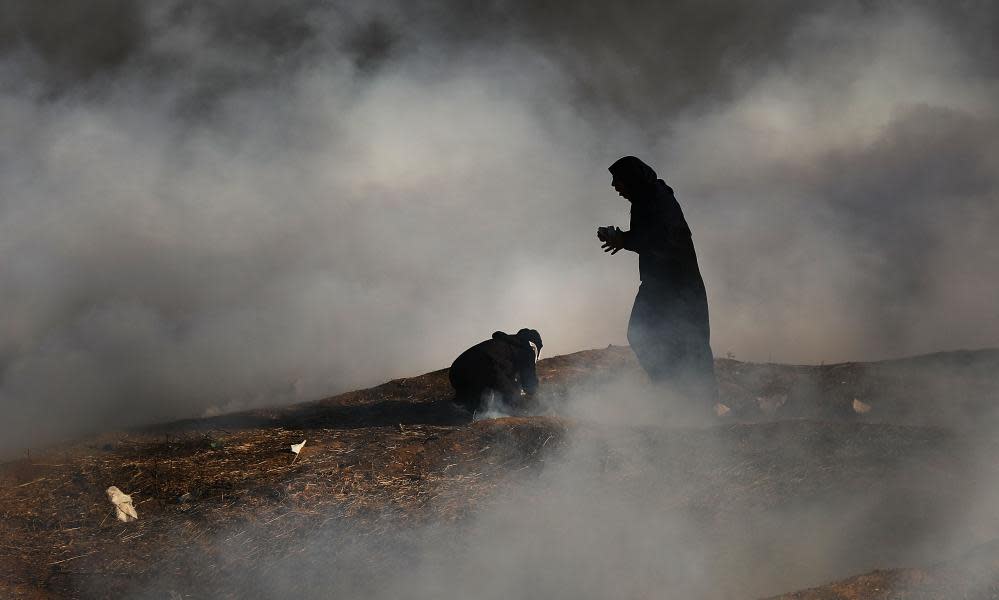Jews and Palestinians are the losers in this pointless political spat

Calls this week for the Conservative peer Lord Sheikh to be expelled from his party, for attending the same Palestinian rights conference as the Labour leader Jeremy Corbyn in 2014, are the signs of a row that has spiralled out of control.
Like Corbyn, Mohamed Sheikh was at the conference at the invitation of the Tunisian president – though he did not lay a wreath. His attendance has prompted the Tory MPs Zac Goldsmith and Robert Halfon to claim the peer breached the party’s code of conduct. Goldsmith tweeted: “If this man is not immediately expelled from the Conservative Party, the Party hierarchy’s complaints about Corbyn will look entirely cynical.” This is an unfortunate arrangement of words, since such complaints look pretty cynical whether or not the man is expelled.
In any case, Sheikh’s critics pointed to the presence in Tunis of members of Hamas, a terrorist organisation according to a ruling by the European court of justice, although their attendance is not surprising if the event was partly focused on unity-building between Hamas and Fatah (Palestinian rival groups since 2007).
This week on the BBC’s Today programme, Sheikh, who had gone to the Tunisian conference to speak about the Arab spring and settlements in Palestine, found himself interrogated over the title of the event he had decided to attend: the International Conference on Monitoring the Palestinian Political and Legal Situation in the Light of Israeli Aggression. The event took place on 30 September 2014. Two months earlier, in July, Israel had begun a 50-day assault on the blockaded Gaza Strip, responding, it said, to rockets fired by Hamas into Israel (though this business of who started what and when is a part of this long and asymmetric Israeli-Palestinian conflict).
More than 2,100 Palestinians died during that period. The vast majority were civilians, including 495 children, according to the UN. Seventy-two Israelis died, most of whom were soldiers. In Gaza, more than 11,000 people were injured and thousands of homes were reduced to rubble, while factories, farmland, crops and livestock were destroyed, devastating Palestinian life in the strip.
That’s just one conflict – and we haven’t even started on Israel’s ongoing military occupation or its settlements. But are we now saying that attending an international conference about Palestinians, featuring the words “Israeli aggression” and taking place a few months after this terrible assault, is to be condemned? How should a Tunisian president name an event concerning the Palestinian situation: by referring instead to “Israeli aggression, but actually we think you’ll find Hamas also fired rockets and a UN investigation criticised both sides”?
The attacks on Sheikh came shortly after he criticised Boris Johnson for dog-whistle comments about Muslim women in burqas and his demands that Conservatives take seriously complaints of Islamophobia in the party.
It’s hard to see any winners in this sorry mess, but there are clear losers: Palestinians and Britain’s Jewish and Muslim communities, who are forced to endure the hasty, ill-conceived slanging matches that seem to increasingly dominate Britain’s political culture.
In the aftermath of Sheikh’s grilling on the Today programme, the Labour MP Margaret Hodge pitched into Labour’s antisemitism row, which has flared over the summer. In a Sky News interview, Hodge said: “It’s a very fine line between being pro-Palestinian and being antisemitic and I think he’s gone the wrong side of that line.”
This is an infuriating statement. It is perfectly possible to be both supportive of Palestinians and committed to fighting antisemitism. To pit one against the other is to drive a wedge between causes, forcing people to choose where no choice is necessary. This is false zero-sum-game politics. Hodge’s words are needlessly provocative in relation to progressives battling claims that accusations of antisemitism are simply about shutting down criticism of Israel.
If politicians, egged on by sections of the media, want to lambast each other, fine, let them fill their boots – it’s not as though the UK has something enormous and pressing to be getting on with instead. But it would be great if they could avoid needlessly trashing the Palestinian cause and bungling race-hate issues in the process. News cycles eventually move on. But we will be left clearing the divisions and damage in their wake.
• Rachel Shabi is a writer and broadcaster

 Yahoo News
Yahoo News 